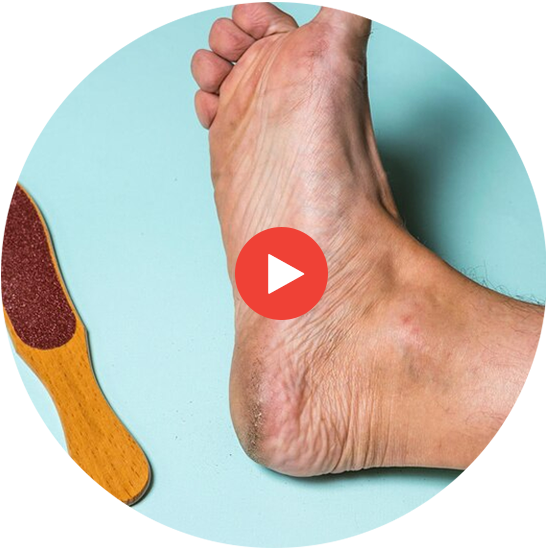

TELMDCARE
What is
Gout?
Gout is commonly considered a form of arthritis that results in severe pain, stiffness, and inflammation of the joints. It usually targets the metatarsophalangeal joint which is located at the bottom of the big toe and is caused by crystallized uric acid building up in the joints.
Gout is one the most commonly recorded medical illness in history and more than 3 million Americans suffer from gout, especially men. Moreover, it’s a recurring condition that can cause tissue damage in the longer run, essentially making the pain worse.
Gout attacks can occur suddenly and frequently. Most patients describe the pain by relating it to the feeling of the foot being on fire.

TELMDCARE
Stages and
Types of Gout
Asymptomatic hyperuricemia
Acute gout
Interval or anticritical gout
Chronic tophaceous gout
Pseudogout
TELMDCARE
Is covered by many popular
insurance plans

TELMDCARE
Causes of Gout
- Metabolism or blood disorders and dehydration can drive your body to produce access of uric acid
- A thyroid issue or a kidney problem (included inherited conditions) can prevent your body from removing the extra uric acid
- Sometimes, a person's diet can cause gout due to the consumption of foods with a lot of purines that produce gout.
- A history of gout in family
- Certain medications like cyclosporine and diuretics
- Conditions like kidney diseases, high blood pressure, sleep apnea, thyroid, and diabetes can also cause gout
Gout symptoms are very easily recognized and mostly appear out of the blue, usually at night. Look out for these symptoms.
- Severe pain in the joints, usually in the big toe. But there could also be a pain in any other joints including ankles, knees, wrists, fingers, and elbows. The pain lasts a while and is most severe in the first few hours.
- There will also be discomfort even after the pain subsides. This discomfort focused mainly around the joints may last a few weeks.
- A lot of inflammation and redness of the joints. Joints may also feel warm and tender.
- As gout progresses, it may become harder to move the joints like before.
- The affected foot may feel like it’s on fire.

Managing A Gout Attack
There are quite a few ways to handle a gout attack when it occurs. While none of these tips will permanently treat the condition, they will help to manage the symptoms, including intense pain.
Treatment Options for
People with Gout
Gout needs to be treated properly; otherwise, it can develop into arthritis, leaving your joint permanently swollen, painful and damaged.

TELMDCARE
What Increases Your
Chances Of Gout?
You’re more likely to develop hyperuricemia if you have a variety of health conditions, such as being male, being overweight, or having high blood pressure. In addition, you’re more likely to get gout if you drink alcohol.
A diet that’s high in purines can help break down uric acid in the body. Some of the types of food that are rich in purines include red meat, seafood, and organ meat.
Gout Diagnosis
A medical doctor can diagnose gout depending on the symptoms and the results of various tests, such as X-rays and physical examinations. Only a flare can trigger a diagnosis of this condition. It can only be diagnosed if a joint is swollen and painful and a lab test reveals crystal deposits.
The disease should be treated by a virtual doctor for Gout, who specializes in the treatment of this condition. This is because its symptoms and signs are not specific, and they can look similar to those of other inflammatory diseases. These doctors are referred to as rheumatologists.
Gout Treatment
Treating gout can be done through various methods, such as self-management and medical treatment. Your doctor may also suggest a treatment plan based on your condition.
One of the most effective ways to treat a flare is by taking nonsteroidal anti-inflammatory medications (NSAIDs). These include ibuprofen and steroids.
Getting rid of extra weight and drinking less alcohol can prevent future flare-ups. In addition, eating less purine-rich food, such as organ meat or red meat, can help decrease the risk of developing this condition.
If you have high levels of uric acid, preventing kidney stones and tophi from forming can also be done. Tophi are hard deposits of uric acid that can be found under the skin. For people who have chronic or acute gout, preventive therapy can help lower their uric acid levels.
Besides taking medication, you can also manage your gout through self-management. This is a type of discipline that involves making healthy lifestyle choices and managing your condition. It can help decrease disability and pain.
Can Gout Be Prevented?
Gout is a condition that can be prevented easily with some intense lifestyle and diet changes. They don’t guarantee the complete absence of gout attacks but can help to lower the frequency and relieve symptoms.
- Avoid being dehydrated by keeping your water intake high
- Stay healthy and maintain optimal levels of uric acid by exercising regularly.
- Cut down on alcohol
- Avoid red meat, shellfish, gravy, fruit sugar
- Limit protein from animals
TELMDCARE
As Seen On


TELMEDCARE
What we treat
We treat a variety of acute and chronic conditions and provide expert medical advice and guidance for our patients.

How Can Telemedicine Doctors at
TelMDCare Help You with
Gout Attacks?
TELMDCARE
Sign Up
Our best online doctors on call ensure that the services we provide are adequate, high quality, and affordable.
Get in touch with us today for more details or Sign Up for a quick consultation.
TELMDCARE
Common FAQs Related to Gout Attack
Who's Usually Affected by Gout? Am I More Likely to Develop It?
Generally, gout can occur in anyone. However, some people may be more at risk. For instance, women after menopause, obese individuals, those with diabetes or congestive heart failure, or those with a family history of gout. People with kidney diseases and hypertension are also considered at risk. You may be at risk if you have any of the above conditions or if you have a lifestyle that promotes high levels of uric acid.
Do Gout Attack Happen Frequently?
For some people diagnosed with gout, they may have attacks very frequently. Others may have years between each episode. Generally, gout attacks become more frequent when left untreated. Moreover, they can happen in the same joint or different ones at different points in time.
How Can I Be Sure I Have Gout?
You can’t be sure without consulting a doctor. The doctor will hear out your symptoms, may conduct a physical examination, do some blood work, imaging tests, and other procedures before confirming the diagnosis
What Happens If I Leave Gout Untreated?
Gout should be treated if one hopes to avoid permanent joint damage. People with gout can also develop other serious conditions like heart disease, kidney stones, and so on.



